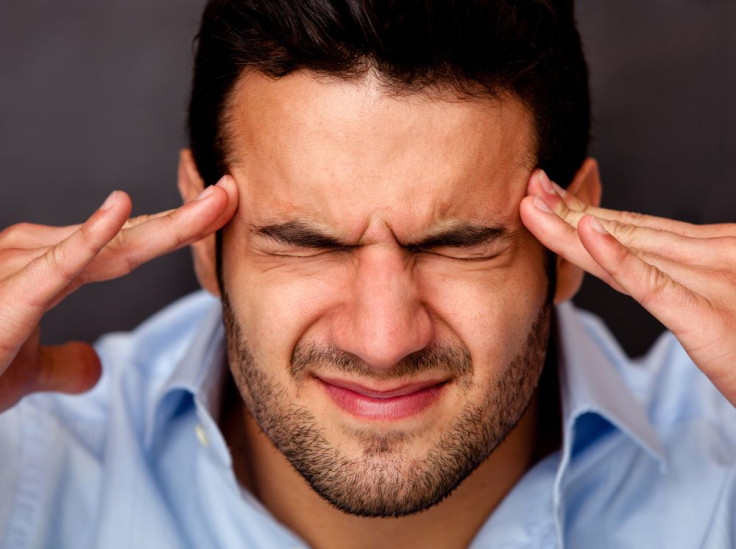Stress Certainly Does Cause Headaches: 3 Ways To Reduce Your Stress

It’s something most of us probably expected by now, but a new study claims to confirm, undoubtedly, that stress causes headaches.
It probably doesn’t come as a surprise. After all, the two have long been suspected to be related, and stress is even said to be the most common trigger of headaches, according to the Mayo Clinic. The German researchers, who will present their findings at the annual meeting of the American Academy of Neurology in Philadelphia, found that the more stressed a person is, the longer they’ll experience headaches.
“Our findings are important to support the tailoring of stress management in patients with different types of headaches,” said lead researcher Dr. Sara Schramm, of the University Hospital of the University Duisberg-Essen, according to HealthDay. “The benefit from interventions for stress might be slightly higher in patients with tension headaches than in migraine patients.” Of course, a tension headache is more common and less severe than a migraine.
The researchers looked at data from the German Headache Consortium Study, which held headache and other health information pertaining to over 5,100 adults who were interviewed every three months between 2010 and 2012. About 30 percent of participants said that they suffered from tension headaches, which typically lasted for a little over two days each month. The effects of stress exacerbated the severity of the headaches though, and with each 10-point increase in stress levels, the participants’ headaches lasted about 3.3 hours more, The Los Angeles Times reported.
By comparison, 14 percent of people said that they suffered migraines, which lasted for about 4.5 days each month. Again, more stress meant longer headaches, lasting about 4.6 extra hours for each 10-point increase in stress. Similar results held for the 10.6 percent of people who suffered from both kinds of headaches, whose 10-point increases in stress translated into an extra 3.5 hours of headaches.
So yeah, it was probably obvious that these two were connected in some sort of way. The researchers said that the findings are “important to support the tailoring of stress-management approaches in patients with different headache subtypes,” Schramm told LiveScience. “[These] results add weight to the concept that stress can be a factor contributing to the onset of headache disorders, that it accelerates the progression to chronic headache, exacerbates headache episodes, and that the headache experience itself can serve as a stressor.”
In other words, Schramm is saying that it’s not the headaches that need treating, it’s the stress. And that’s not that hard to deal with. Here’s how:
Listen to Music
Music, no matter what kind, can have some calming effects. A study from researchers at the Department of Psychology at McGill University found that listening to music was better than prescription medications at reducing stress before an operation — if it can work on people about to go under the knife, it can surely work on just anyone. The same study also found that music reduced levels of the stress hormone cortisol, which has been implicated in obesity.
Light Yoga, Meditation, Deep Breathing
All of these are almost one and the same. The silence that comes with meditation, the poses that come with yoga, and the calmness that pairs with deep breathing all come together in an activity not only reduces cortisol levels but also encourages mindfulness, which focuses on paying attention to what’s happening inside of one’s own space — thoughts, feelings, and sensations — without judgment or reaction.
Sleep
Sleep certainly sounds like a good alternative to dealing with the stressful situations in our waking life. But in reality, taking only a nap has been shown to reduce cortisol levels as well. In a 2011 study, published in the journal Brain Behavior and Immunity, researchers found that sleep-deprived participants’ cortisol levels dropped after taking a 30-minute nap.
Published by Medicaldaily.com



























